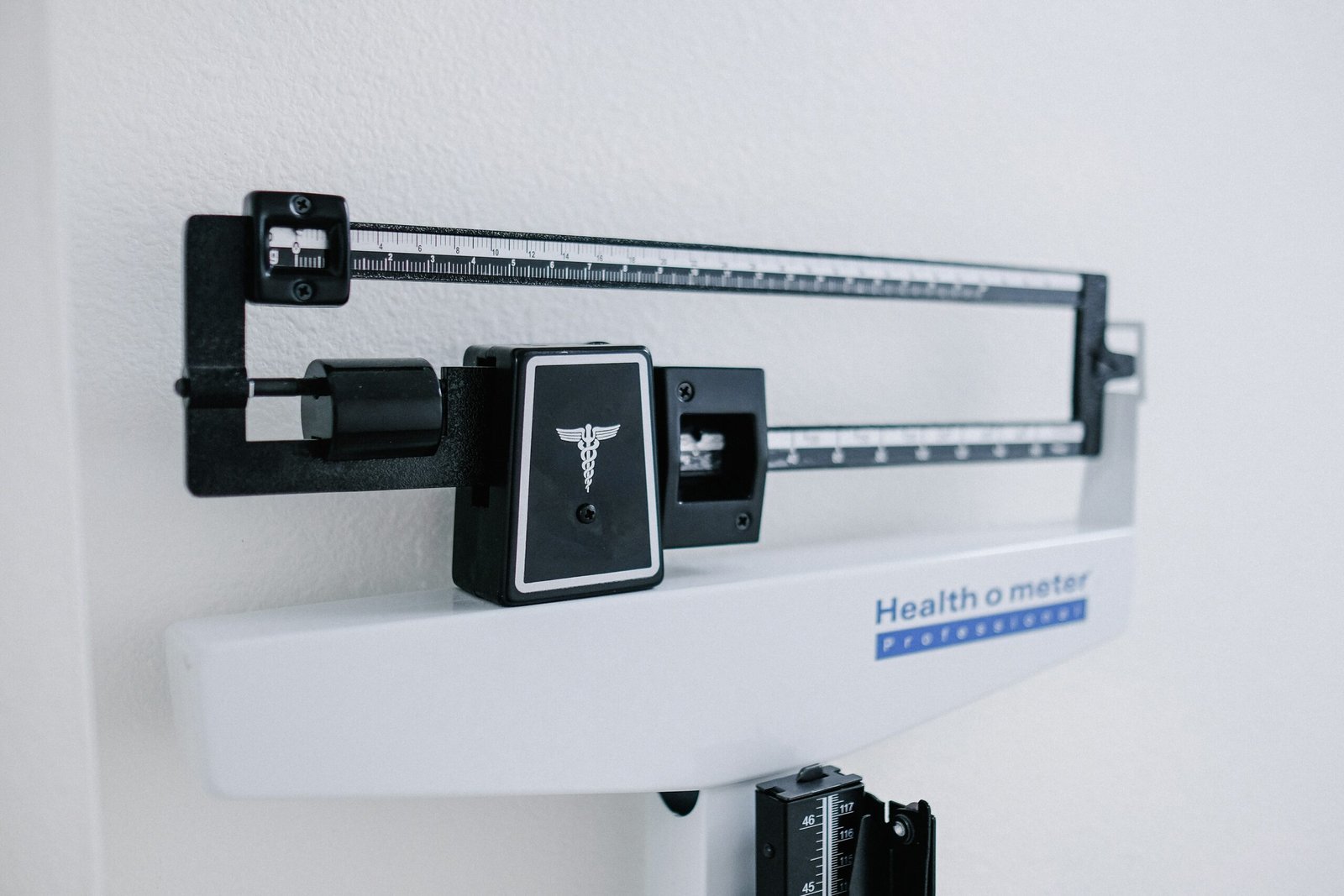
Introduction to the Secret Diet Protocol
In the contemporary landscape of health and wellness, the search for effective and sustainable dietary solutions has become paramount. The ‘secret’ diet protocol offers a promising approach that addresses the common challenges faced by many seeking long-term health benefits. Unlike traditional dieting methods that often emphasize rapid weight loss or strict food group exclusions, this protocol integrates a balanced and holistic approach. By focusing on sustainability, it ensures that individuals can maintain their health objectives over an extended period without feeling deprived or overburdened.

Readers embarking on this journey will gain insights into a methodology that diverges from conventional diet plans. This innovative protocol navigates through the complex maze of nutritional needs, providing a clear path that circumvents typical dieting pitfalls such as yo-yo dieting, nutrient deficiencies, and unsustainable eating habits. The aim is to foster a deeper understanding of how to harmonize one’s dietary practices with their lifestyle and health goals.
As we delve into this protocol, expect to uncover the principles which make it distinctively effective. The focus extends beyond mere weight management to encompass overall well-being, highlighting the profound connection between a sustainable diet and holistic health. The benefits range from improved energy levels and enhanced mental clarity to better immunological health, showcasing an all-encompassing approach to nutrition.
Through systematic exploration, this blog post will shed light on the practical steps for implementing the protocol, ensuring that it is adaptable and feasible for a diverse range of individuals. This introductory section sets the stage for a comprehensive examination of the innovative strategies that underpin the ‘secret’ diet protocol, paving the way for a healthier and more sustainable future.
The Principles Behind Sustainable Eating
At the heart of any effective diet protocol lies a commitment to sustainability. This approach ensures that the practices adopted are not only beneficial but also maintainable over the long term. One of the cornerstone principles is balance. A sustainable diet prioritizes a harmonious mix of different food groups, ensuring no single nutrient is disproportionately consumed. Such harmony supports various bodily functions and mitigates the risks associated with nutrient imbalances.
Nutrient diversity is another critical element. This principle underscores the importance of consuming a wide range of foods to secure a broad spectrum of nutrients. By integrating a variety of fruits, vegetables, proteins, and whole grains into the diet, individuals can better meet their nutritional needs and support overall health. Minimally processed foods deserve special mention here. These foods retain more of their natural nutrients compared to their heavily processed counterparts, which often come laden with additives and preservatives detrimental to health.
Understanding macronutrient ratios is vital in this context. Carbohydrates, proteins, and fats must be consumed in ratios that align with an individual’s specific energy and health needs. Each macronutrient plays a distinct role; while carbohydrates provide energy, proteins are essential for tissue repair, and fats offer long-lasting energy and support cell functions. Balancing these macronutrients effectively can have a profound impact on one’s health.
Moreover, the role of micronutrients cannot be overlooked. Vitamins and minerals, though required in smaller quantities, are indispensable for maintaining vitality. They support immune function, bone health, and other critical physiological processes. Integrating a diet rich in micronutrients ensures the body’s intricate systems operate optimally.
Finally, the importance of hydration cannot be overstressed. Water facilitates countless bodily functions, from digestion and nutrient transport to temperature regulation and toxin elimination. Regular and adequate water intake is a non-negotiable aspect of a sustainable diet protocol.
Together, these principles – balance, nutrient diversity, minimized processing, correct macronutrient ratios, adequate micronutrient intake, and proper hydration – create a comprehensive framework for sustainable eating. These elements collectively ensure the diet protocol not only fosters immediate health benefits but also supports enduring well-being.
Personalization: Tailoring the Diet to Your Needs
Personalization is a critical component of any effective diet protocol. Each individual possesses unique health goals, body types, and lifestyle factors, which necessitate a customized approach to nutrition. By personalizing a diet plan, one can better address their specific needs, ultimately fostering long-term sustainability and health improvements.
To tailor a diet to your needs, it is essential first to identify your health objectives. Whether your goal is weight loss, muscle gain, improved metabolic health, or managing a chronic condition, recognizing these aims will influence your dietary decisions. For instance, an athlete focusing on muscle gain may require a higher protein intake, whereas someone managing diabetes might concentrate on optimizing blood sugar levels.
A practical approach for personalizing your diet is to understand your body type. The three primary body types—ectomorph, mesomorph, and endomorph—have distinct nutritional requirements. Ectomorphs, typically lean and long, may benefit from higher carbohydrate intake to fuel their faster metabolism. Mesomorphs, characterized by a more muscular build, might require a balanced macronutrient approach. Endomorphs, with characteristics of higher body fat storage, may see better results with a diet higher in protein and fats, and lower in carbohydrates.
Lifestyle factors also play a significant role in diet personalization. Individuals with demanding work schedules may need to focus on convenient, healthy food options, whereas those with more flexible routines might have the liberty to prepare elaborate, nutritious meals. Additionally, consideration of activity levels is crucial. A physically active person will have different caloric and nutrient needs compared to someone with a sedentary lifestyle.
For readers looking to identify their unique nutritional needs, several tools and methodologies can be of assistance. Online assessments and apps offer preliminary guidance, while comprehensive labs can provide insights into one’s nutritional deficiencies and metabolic health. However, the role of professional guidance cannot be overstated. Consulting with a registered dietitian or nutritionist can provide tailored, evidence-based advice, ensuring that your diet is aligned with your personal health goals and lifestyle needs.
Utilizing a personalized approach to your diet not only enhances your chances of success but also promotes sustainable health benefits. By considering your individual requirements and seeking professional guidance, you can adapt any diet protocol to become a part of your daily life, maintaining optimal health and well-being.
Key Foods and Their Benefits
A pivotal element of the secret diet protocol lies in the selection of key foods that support sustainable health. Central to this dietary approach are superfoods, whole grains, lean proteins, and healthy fats, all carefully chosen for their substantial health benefits and nutritional profiles.
An essential group to consider is superfoods, renowned for their high concentrations of vitamins, minerals, and antioxidants. Blueberries, for instance, are rich in anthocyanins, which have been linked to reduced inflammation and lower risks of chronic diseases. Similarly, kale is packed with vitamin K, vitamin C, and beta-carotene, which together support bone health, immune function, and skin health.
Whole grains are another cornerstone of the protocol. Foods such as quinoa, brown rice, and oats are celebrated for their high fiber content, which aids in digestion and helps regulate blood sugar levels. Whole grains also provide essential B vitamins, iron, magnesium, and selenium, which collectively contribute to energy metabolism and maintenance of cardiovascular health.
Lean proteins form a crucial component of this diet. Options like chicken breast, turkey, tofu, and fish are excellent sources of high-quality protein, necessary for muscle repair and growth. Fish, particularly fatty varieties like salmon, provide omega-3 fatty acids, which are crucial for maintaining heart health and reducing inflammation.

Healthy fats should not be overlooked. Nuts, seeds, avocados, and olive oil offer monounsaturated and polyunsaturated fats that promote heart health. These fats assist in lowering bad LDL cholesterol levels while boosting good HDL cholesterol. They also play a significant role in supporting cognitive function and overall brain health.
Additionally, incorporating a variety of vegetables and fruits into the diet ensures a rich intake of essential nutrients and antioxidants that guard against cellular damage. Cruciferous vegetables such as broccoli and Brussels sprouts, and citrus fruits like oranges and lemons, are particularly beneficial due to their potent health-promoting properties.
By seamlessly integrating these key foods into daily meals, the secret diet protocol paves the way for sustainable health, bolstered by robust scientific evidence highlighting their individual and synergistic benefits.
Meal Planning and Preparation
Effectively adhering to the ‘Secret’ Diet Protocol begins with a solid foundation of meal planning and preparation. Crafting balanced meal plans is essential to ensure nutritional requirements are met while fostering sustainable health. Meal planning involves detailing your food intake for the upcoming days or weeks, aligning with the diet protocol’s specific guidelines.
Start by creating a weekly meal plan that includes a variety of vegetables, lean proteins, whole grains, and healthy fats. This diversity guarantees that you obtain a comprehensive range of nutrients crucial for overall well-being. For instance, a balanced meal plan might feature breakfasts of Greek yogurt with fresh berries, lunches composed of quinoa salads with mixed greens and grilled chicken, and dinners centered around steamed fish with roasted vegetables.
Grocery shopping is another critical component, as it ensures you have all ingredients needed for your planned meals. Always make a shopping list that corresponds with your meal plan. Opt for fresh, organic produce when possible, and avoid processed foods. Shop the perimeter of the grocery store where fresh produce, meats, and dairy products are commonly located, which aligns with the diet protocol’s focus on whole foods.
Meal prepping techniques can significantly streamline adherence to the diet. Allocate a few hours each week, preferably on a weekend, to prepare ingredients or entire meals ahead of time. This could involve cooking large batches of grains, washing and chopping vegetables, and portioning out snacks. Pre-made meals stored in the fridge or freezer facilitate quick, healthy eating throughout the week, eliminating the temptation to stray from the diet.
Here is a sample recipe to illustrate how to incorporate key foods into a cohesive diet:Grilled Lemon Herb Chicken paired with quinoa salad and steamed broccoli. Marinate chicken in lemon juice, olive oil, garlic, and herbs for an hour, then grill. Cook quinoa and mix with diced cucumbers, cherry tomatoes, and parsley. Steam broccoli until tender, and drizzle with a touch of lemon juice before serving.
The importance of consistency and planning in meal preparation cannot be overstated. Regularly revisiting and adjusting your meal plans as per the dietary protocol guidelines ensures long-term, sustainable health benefits—allowing the ‘Secret’ Diet Protocol to seamlessly integrate into your lifestyle.
Combining Diet with Lifestyle Changes
In order to achieve sustainable health, it is essential to integrate a diet protocol with broader lifestyle changes. The interplay between diet, physical activity, stress management, and sleep can significantly enhance one’s overall well-being. Each of these factors complements the others, creating a synergistic effect that fosters more effective and long-lasting results. For example, a balanced diet rich in nutrients not only fuels the body but also optimizes physical performance and recovery during exercise. Incorporating regular physical activity can, in turn, help regulate appetite and improve metabolic health.
Effective stress management is another critical component that works in tandem with diet to promote holistic health. Chronic stress can lead to unhealthy eating habits and disturb metabolic processes, which in turn can undermine the benefits of a healthy diet. Strategies such as mindfulness, meditation, and engaging in relaxing activities can help alleviate stress, thereby supporting better nutritional choices and digestion.
Equally important is the role of sleep in maintaining overall health. Quality sleep is essential for metabolic regulation, hormonal balance, and mental clarity. Poor sleep can negatively impact willpower, making it more challenging to adhere to a healthy diet. Prioritizing sleep hygiene practices, such as maintaining a consistent sleep schedule and creating a restful environment, can greatly enhance diet effectiveness. To support these lifestyle changes, it is beneficial to set realistic and manageable goals, gradually incorporating them into daily habits.
Beyond the physical aspects, the psychological benefits of a sustainable diet combined with positive lifestyle changes are profound. Adopting a holistic approach can improve mental health by reducing symptoms of anxiety and depression, enhancing mood stability, and fostering a sense of accomplishment and control. This comprehensive strategy not only nurtures the body but also cultivates a healthy mind, thereby supporting long-term adherence and overall life satisfaction.
Tracking Progress and Adjusting the Plan
Monitoring progress is crucial when following any diet protocol, including the ‘Secret’ Diet Protocol for Sustainable Health. Robust tracking methods allow individuals to understand their ongoing results and empower them to make data-driven adjustments. Various methods can be employed to track dietary intake, physical health markers, and overall personal well-being.
One of the primary tools for tracking dietary intake is a food diary. Digital applications like MyFitnessPal and Cronometer can significantly simplify the process by providing comprehensive nutrient breakdowns. Recording every meal and snack can uncover patterns and identify areas for improvement, ensuring adherence to the diet’s principles. Additionally, wearable devices like fitness trackers offer invaluable insight into physical activity levels, ensuring that individuals maintain a balance between calorie intake and expenditure.
Click to join the video course 60 days money back policy available hurry up.
Another critical aspect of progress tracking involves monitoring physical health markers. Regular check-ups with healthcare professionals can provide essential data on weight, body mass index (BMI), blood pressure, and cholesterol levels. Home-based monitoring tools, such as blood glucose meters, can offer daily feedback and highlight immediate adjustments needed for the diet plan. These markers provide a quantifiable measure of the diet’s effectiveness in improving health over time.
Equally important is assessing personal well-being, which includes both psychological and emotional health. Keeping a journal to document moods, energy levels, and overall satisfaction with the diet can offer a holistic view of its impact. Regular self-assessment questionnaires can also draw attention to any negative changes, prompting timely interventions.
Interpreting these metrics involves understanding that each individual’s response to the diet will vary. Consistent tracking allows for the identification of trends and deviations, helping to make informed adjustments. Whether it involves tweaking calorie intake, modifying macronutrient distribution, or altering meal timings, these changes must be flexible and personalized.
A flexible approach is vital to maintaining long-term sustainability. Rigidity in diet plans often leads to frustration and burnout, whereas an adaptive protocol ensures continued motivation and success. The ability to evolve and modify the diet plan based on ongoing results fosters an environment of continual improvement and sustained health benefits.
Real-life Success Stories and Testimonials
One of the most compelling aspects of any diet protocol is the real-life success stories that come from its adopters. Individuals from diverse backgrounds have successfully tailored the ‘Secret’ Diet Protocol to meet their unique needs and, in doing so, have achieved remarkable health improvements.
Take, for example, Clara, a 45-year-old mother of two, who struggled with weight management and low energy levels. After adopting the diet protocol, she reported not only a significant weight loss of 30 pounds over six months but also a marked increase in her energy and productivity. Clara highlights the importance of consistency and adaptability, noting that she customized meal plans to fit her family’s dietary preferences while adhering to the core principles of the diet.
John, a 60-year-old retired teacher, faced a litany of health issues, including high cholesterol and hypertension. Skeptical at first, he cautiously began integrating the ‘Secret’ Diet Protocol into his daily routine. Within a year, not only had John normalized his cholesterol and blood pressure levels, but he also experienced an overall improvement in his wellbeing. Like Clara, John emphasizes personalization, sharing how he gradually adjusted his meal choices to include more fiber-rich and nutrient-dense options that aligned with his medical needs.
Another inspiring story is that of Emily, a young professional in her 30s, who battled with digestive issues for years. Conventional dietary advice offered little relief until she stumbled upon the ‘Secret’ Diet Protocol. By making informed choices and following the guidelines diligently, she saw a dramatic improvement in her digestive health. Emily’s story underscores the protocol’s adaptability, as she successfully balanced her busy lifestyle with the program’s requirements, thereby achieving sustainable health without compromising her professional commitments.
These anecdotal accounts offer not just motivation but practical insights into how the ‘Secret’ Diet Protocol can be customized to fit individual circumstances. They illustrate the journey, challenges, and ultimate triumphs that come with adopting a sustainable approach to health. The emphasis on personalized application demonstrates that anyone, regardless of their starting point, can experience transformative health benefits through this protocol.
Conclusion: Embracing a Sustainable Diet for Lifelong Health

Throughout our exploration of the ‘Secret’ Diet Protocol, we delved into various strategies for achieving sustainable health. Central to this approach is a balanced and nutrient-rich diet that aligns with both personal health outcomes and environmental sustainability. By prioritizing whole foods, reducing processed foods, and incorporating a variety of plant-based options, individuals can significantly improve their overall well-being.
Adopting this diet protocol offers numerous benefits, including improved energy levels, enhanced mental clarity, and a reduced risk of chronic diseases. Emphasizing the importance of portion control, hydration, and mindful eating further supports these advantages. Moreover, the protocol’s flexibility allows for personalization, ensuring that it can be adapted to fit various lifestyles and dietary needs.
Taking actionable steps towards integrating these principles into daily routines is essential. Start by gradually increasing the intake of fruits, vegetables, and whole grains while simultaneously decreasing the consumption of processed and sugary foods. Seek out high-quality, sustainably sourced ingredients to maximize nutritional benefits and minimize environmental impact.
The journey towards sustainable health is ongoing and multifaceted. It involves continuous learning and adaptation but is undoubtedly rewarding. We encourage readers to embark on this journey with curiosity and commitment and to share their experiences and insights. Engaging with a community of like-minded individuals can provide additional support and motivation.
For those seeking further information or personalized guidance, consulting with healthcare professionals or dietitians can be invaluable. Together, we can embrace the principles of the ‘Secret’ Diet Protocol and work towards a healthier, more sustainable future.

If you want to LEARN FULL COURSE: Click Here

